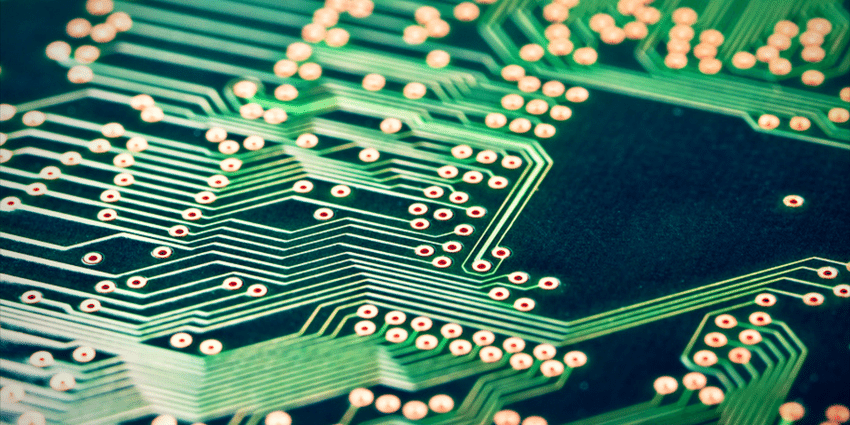Whether it’s remotely recording your favorite TV show an hour before you get home, your fridge automatically ordering more orange juice when you’re running low, answering your doorbell while you’re out for dinner, or simply texting your friend on your smartphone, you’re making use of the Internet of Things, or IoT, which some say will become the “next Industrial Revolution.”
IoT connects our devices and us so we’re no longer restricted by distance or time when we want to interact with a machine. Some of this machine-to-machine communication is rather trivial, such as asking Alexa to sing “Happy Birthday” or asking Siri where the nearest pizza joint is. But other realms of the Internet of Things in the commercial and industrial sectors, such as IoT in fleet management, are changing the way business is done today.
IoT in Fleet Management
A great example of how IoT is changing business practices is with the connectivity of vehicle fleets. Fleets used for distribution or mobile servicing are a pivotal aspect of a business’ operations and how efficient they are can dramatically affect companies’ bottom lines. So quite naturally, businesses are tracking their vehicles and other mobile assets with the help of modern communications networks and IoT to maximize efficiencies wherever possible.
“Machine and deep learning algorithms will open up new possibilities to detect patterns within, and between, sensor data streams to optimize vehicle performance, service and lifespan. Cloud platforms that support IoT integrated with business applications provides a fast path to delivering new solutions to old problems.”
Geoff Annesley, One Network
IoT in Fleet Management Boosts Efficiency
Efficiencies gained from IoT in fleet management, and having a GPS- and cellular-connected fleet, range from big picture data collection that allows managers to get a better idea of overall fleet activity, to simple metrics and data points that present clear indications of efficiency and productivity. Here’s a list of just a few of the benefits you’ll gain.
Fuel & Maintenance Efficiency
When you use IoT in fleet management, you can monitor driver behavior — idling and harsh braking, acceleration, and cornering — to ensure that vehicles are being driven as efficiently as possible. When this is done, less fuel is used and maintenance expenditures decrease. You might also capitalize on that in your public relation outreach — you’re reducing your carbon footprint.

Experience the benefits of fuel efficiency when you manage your fleet with IoT.
Precise Time Keeping
IoT in fleet management can also protect you from potential disputes over deliveries or total time spent at job sites. You can easily reference the GPS data from the vehicles to know exactly when a package was dropped off or when a service tech left a location. In fact, you can know exactly where your vehicle was and for how long at any particular time. So just pull out an historical report and let the facts speak for themselves.
Enhanced Organization & Dispatching
Do your drivers take too long to let you know where they are? Does that add to your dispatching headaches? Know where your vehicles are and how long they’ve been there instantly with GPS fleet tracking. Allow your employees to concentrate on the task at hand and let technology take care of the details. Tracking vehicles in real time throughout the day also helps fleet managers make better informed on-the-fly decisions when they need to make operational adjustments.
Improved Safety
American motorists drove a total of 3.1 trillion miles between March 2015 and March 2016, which has brought the number of accidents to its highest level in 10 years. Don’t become a statistic. The use of IoT in fleet management means “managers and drivers can make informed decisions that reduce accident rates and fuel usage, maximize resource deployment and mitigate vehicle wear and tear.”
Controlling the Budget
Keeping control of the budget is always a challenge for fleet managers. Costs can increase unnecessarily when vehicles are poorly maintained, fuel consumption not optimized, and less-than-optimal driver behavior exists. This is where IoT in fleet management becomes a boon. As the cliché goes, “information is power.” The more data you have at hand, the better equipped you are to make adjustments that will increase profitability.

The more data you have at hand, the better equipped you are to make decisions.
What Does the Future Hold?
Some experts predict that the Internet of Things could consist of over 28 billion objects by the year 2021. The potential benefits from such a hyper-connected world are virtually limitless.
Tomorrow’s fleet manager will be the primary hub of data and decision making. Connectivity will be embedded everywhere and in everything and IoT in fleet management will provide managers with data and visibility to manage not only routes, deliveries, and service calls, but also insight into the health, safety, and reliability of his drivers.
What will you do with the Internet of Things? Make sure you never run out of OJ? Or use IoT in fleet management to make your business more connected and efficient than ever before?
If it’s the latter, give us a call at 778-355-9545 or contact us today. We can help.







